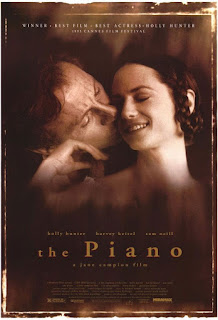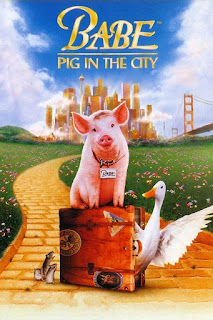March 16th: CITIZEN KANE (Orson Welles, 1941)
NOTE: This film will be projected in the high-definition Blu-ray format.
When a newspaper tycoon dies, a reporter tracks down those who knew him to determine the meaning of his cryptic last words.
When a newspaper tycoon dies, a reporter tracks down those who knew him to determine the meaning of his cryptic last words.
Orson
Welles was a prodigy who left his native United States as a teenager
and lied about his age to secure theatrical acting jobs while traveling
through Ireland and the UK. Later in New York City he was a leading
figure in President Franklin D. Roosevelt's public theatre projects in
low-income neighborhoods, heading innovative productions such as a
Haitian voodoo take on Macbeth and a modern-dress version of Julius
Caesar.
Around this time Welles also took his
talents to radio, primarily in scripted drama, with literary adaptations
as well as popular entertainments like The Shadow. This culminated in
the Halloween prank broadcast of H.G. Wells' War Of The Worlds,
disguised as a real breaking news program. The ensuing panic and media
brouhaha due to gullible viewers landed Welles on the cover of Time
magazine.
Film studio RKO offered Welles an
unprecedented contract, giving the 24 year-old complete creative control
of his first feature, pending approval of the budget and story idea,
with no interference in the script, shooting, or editing process. After
an original plan to adapt Joseph Conrad's Heart Of Darkness in an
entirely POV style fizzled, Welles collaborated on an original script
with veteran screenwriter Herman J. Mankiewicz.
The story's genesis came from both men, who had in the past written scripts dissecting
the lives of prominent figures. As they narrowed their focus to the
publishing world, certain elements from the life of the powerful and
wealthy William Randolph Hearst would be applied to their own
characters. Eventual leaks to the press resulted in controversy about
the subject matter before shooting began.
The
bulk of the film's cast came from Welles' own radio company the Mercury
Theatre, almost none of whom had appeared on camera before, including
Welles himself. On the technical side, Welles quickly educated himself
by watching German Expressionist films as well as works by Jean Renoir
and John Ford, the latter's Stagecoach being a major influence. Ford's
veteran cinematographer Gregg Toland would approach Welles personally
asking to work on the film.
Toland implemented
camera techniques both old and new to achieve whatever visual idea the
naive Welles would dream up, leading to innovative approaches in
composition and scene transitions. Most notable was the wide-angle "deep
focus" photography which allowed for striking images of long-range
clarity and forced perspective. In addition, Welles' experience in radio
led to a very sophisticated sound design, with complex audio montages
and an uncommon use of overlapping dialogue.
Aside
from Toland, Welles hired younger, less experienced people with talent
that he could collaborate closely with (as opposed to veterans loyal to
the studio) including editor Robert Wise (eventual director of West Side
Story, The Sound Of Music), composer Bernard Herrmann (Hitchcock's
Psycho and Vertigo, among others), and make-up artist Maurice Seiderman,
whose work in aging Welles up to 70 years old was as groundbreaking as
anything else in the film.
Hearst and those working for him began
a massive smear campaign to silence the film, with MGM studio head
Louis B. Mayer even offering RKO a large sum of money to destroy the
negative. The newspapers owned by Hearst would not run ads or listings
for theatres wanting to exhibit it, so while the film was ultimately
released, it did not reach the public or make money as well as expected.
Critics were over the moon, praising every facet of the production.
Citizen Kane
was nominated for 10 Academy Awards, with Welles becoming the first
person acknowledged for writing, producing, directing, and acting in the
same film. Unfortunately, the industry backlash would lead to only one
win, for Mankiewicz and Welles' screenplay. The film had a huge effect
on European critics and filmmakers after its post-war release, and over
the years has amassed a level of influence and acclaim unmatched by any
other title, leading to its long-held tag as "The Greatest Film Of All
Time".
Running time is 2 hours.













Comments
Post a Comment